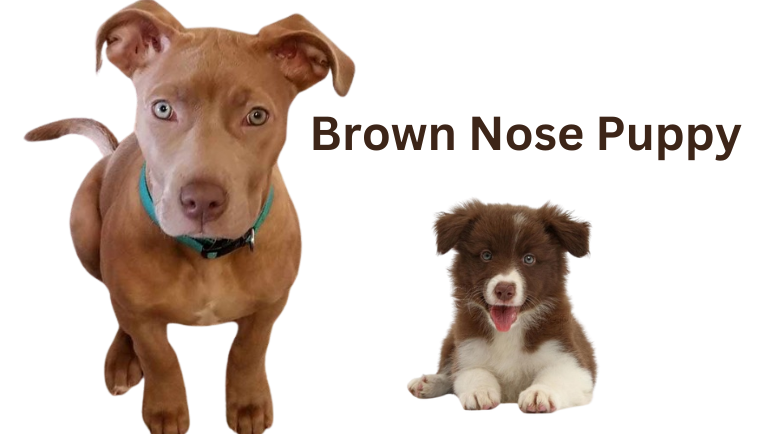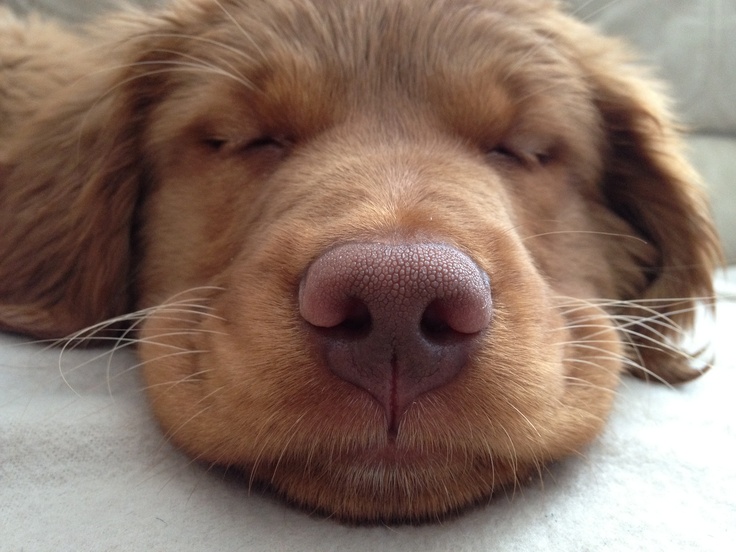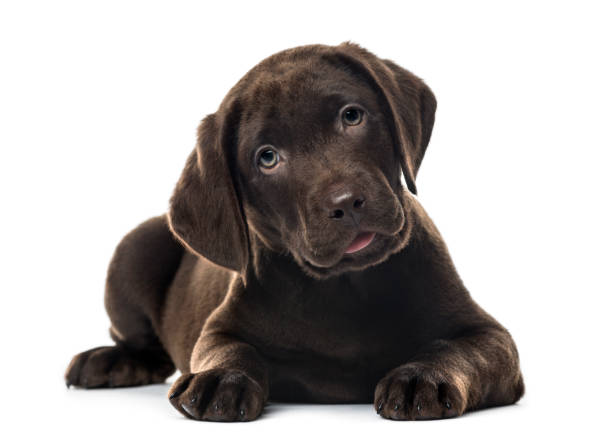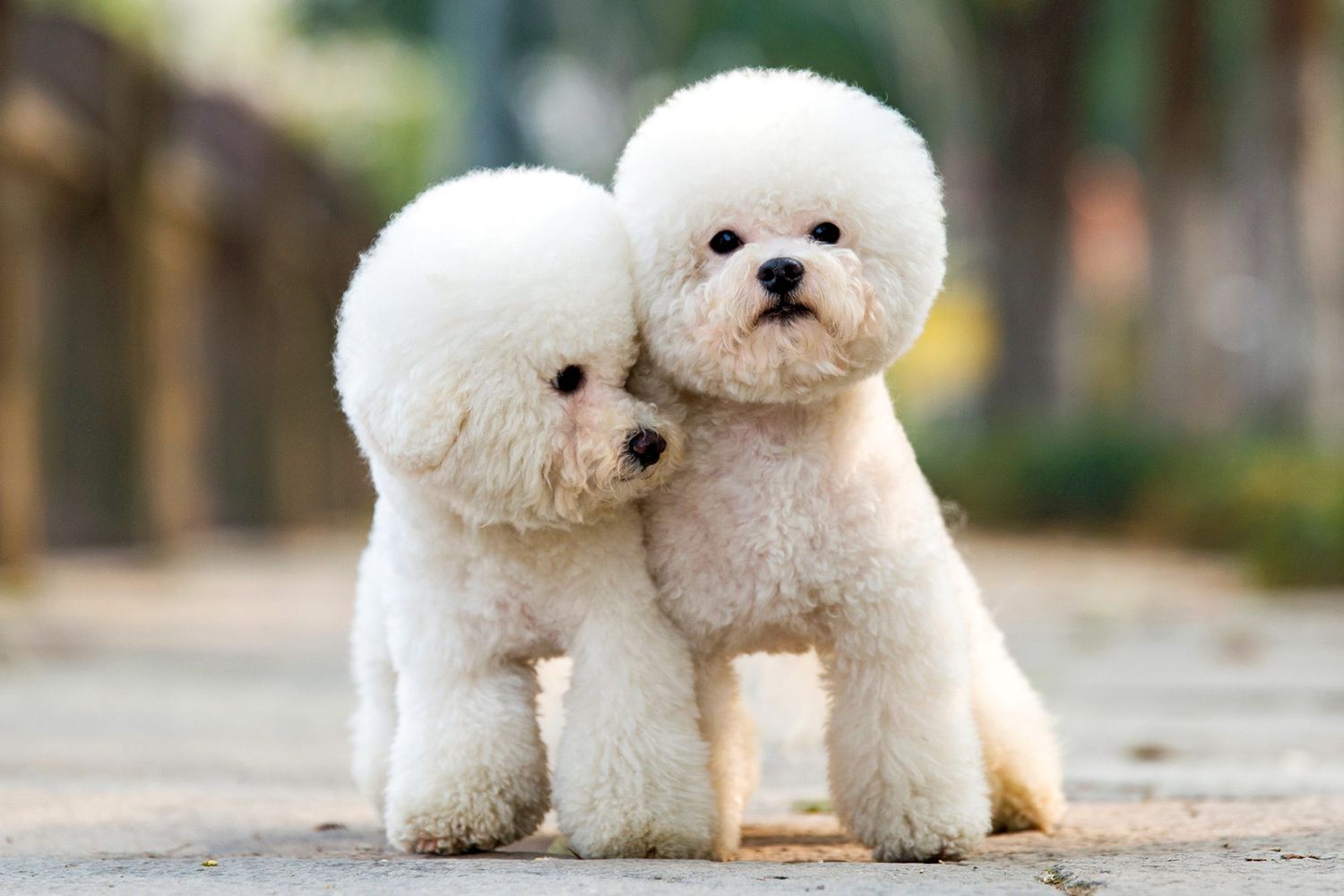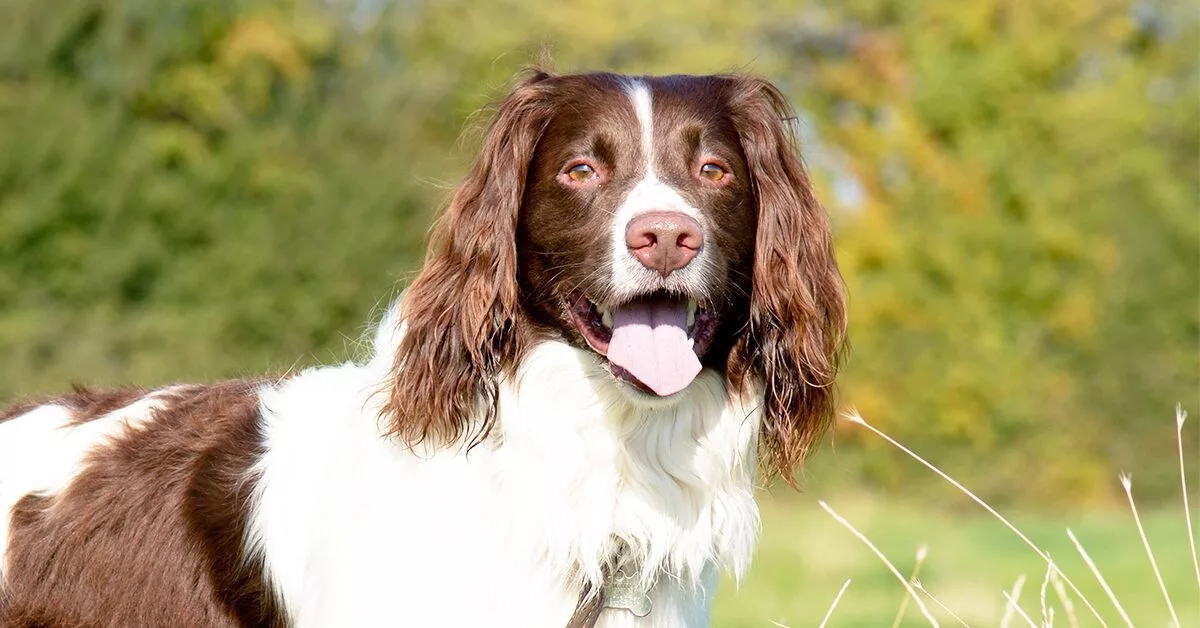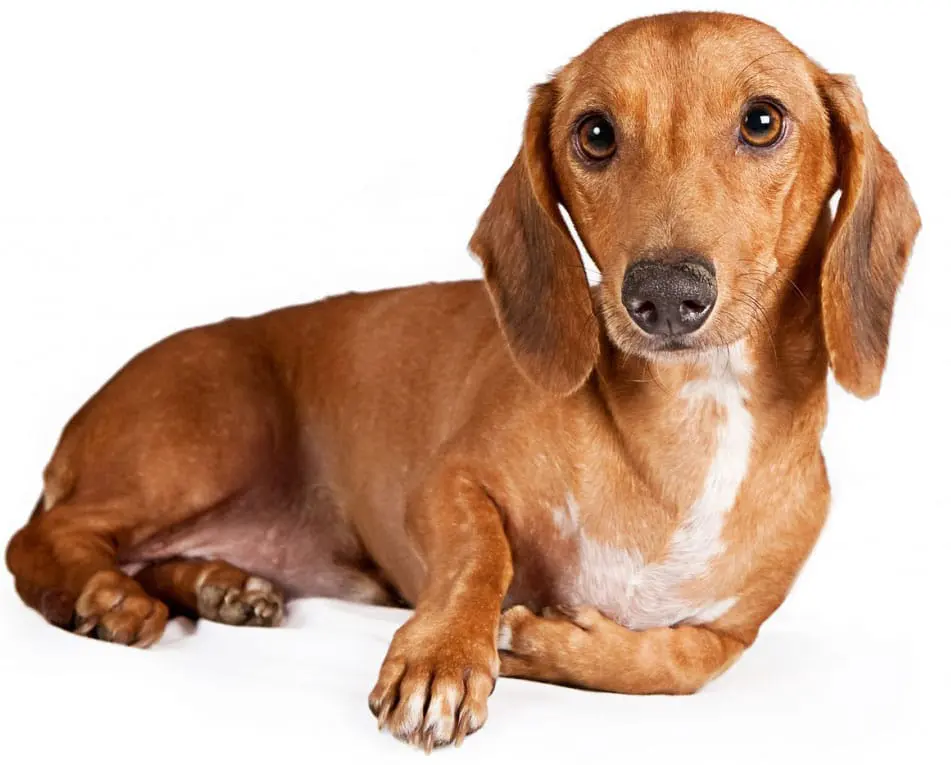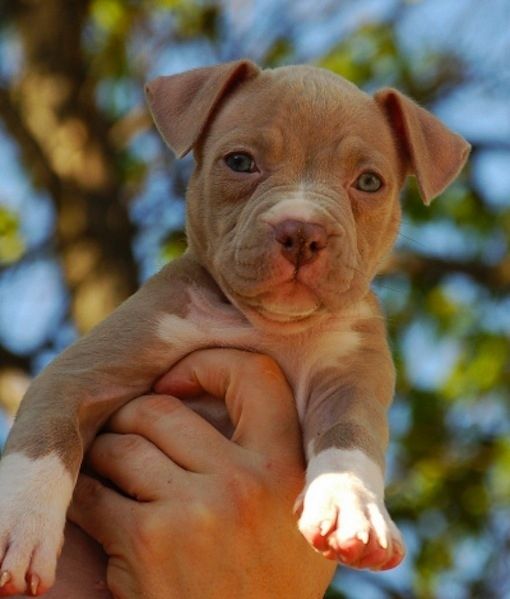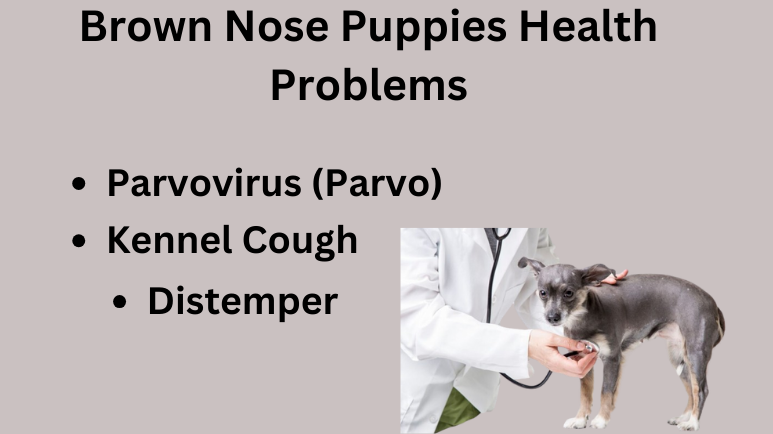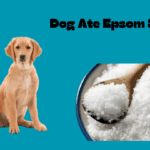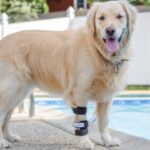Have you ever seen a dog with a brown nose? If you have, you might have wondered why its nose is different from the usual black color. A brown nose puppy is a dog with a brown or liver-coloured nose, instead of a black one.
This is a rare and unique trait in dogs, as a combination of genetic and environmental factors causes it. Some of the dog breeds that can have brown noses are chocolate Labradors, Australian shepherds, and poodles. In this essay, I will inform you about the causes, characteristics, and care of brown nose puppies.
You will learn how the brown nose is determined, what it means for the puppy’s appearance and personality, and how to take good care of it. By the end of this piece of information, you will have a better understanding and appreciation of these adorable and special dogs.
What Causes a Brown Nose in Puppies?
The color of a dog’s nose is determined by a pigment called eumelanin, which is also responsible for the color of the dog’s eyes, ears, tail, and coat. Eumelanin can be either black or brown, depending on the dog’s genes inherited from its parents.
A dog with a black nose has two copies of the dominant gene called B allele, which produces a lot of eumelanin. A dog with a brown nose has at least one copy of the recessive gene called the b allele, which reduces the production of eumelanin. Therefore, a brown nose dog is a result of a genetic variation that affects the amount of pigment in the nose.
However, genetics is not the only factor that can influence the nose color of dogs. Some environmental and health factors can cause a change in the nose color over time. For example, exposure to sunlight can cause the nose to fade or darken, depending on the amount and duration of the sun exposure.
Aging can also cause the nose to lose some of its pigment, especially in dogs with light-colored coats. Some health conditions, such as vitiligo, nasal depigmentation, or Dudley’s nose, can also affect the nose color of dogs, causing it to turn pink or white. These conditions are usually harmless, but they may indicate an underlying problem, such as an infection, an allergy, or an autoimmune disorder. Therefore, it is important to consult a veterinarian if you notice any sudden or unusual changes in your dog’s nose color.
What are the Features of a Brown Nose Puppy?
One of the most noticeable features of brown nose puppies is their appearance. The brown nose can create a striking contrast with the coat color and eye color of the puppy, making it stand out from the crowd. For example, a chocolate Labrador with a brown nose and green eyes can look very different from a black Labrador with a black nose and brown eyes.
A brown nose can also enhance the cuteness and charm of the puppy, especially when it matches the color of its ears, paws, or tail. Some people may even prefer brown nose dogs over black nose puppies, as they find them more unique and attractive.
Another feature of brown-nose puppies is their personality. The brown nose does not affect the health, intelligence, or temperament of the puppy in any way. A brown nose puppy can be just as healthy, smart, and friendly as a black nose puppy, as long as it is well-cared for and loved.
The brown nose is simply a cosmetic difference that does not change the essence of the dog. A brown nose puppy can have the same breed characteristics and individual traits as any other puppy, regardless of its nose color.
Some examples of famous brown nose dogs are Marley from the movie Marley & Me, and Coco from the book A Dog’s Purpose. Marley was a chocolate Labrador retriever with a brown nose, who was adopted by a young couple and became their loyal and mischievous companion.
Coco was a poodle with a brown nose, who was reincarnated as different dogs throughout his life and learned the meaning of love and loyalty. These brown nose dogs have touched the hearts of millions of people with their stories and adventures. They show that brown nose puppies are not only beautiful but also wonderful and inspiring.
How to Care for and Groom Brown Nose Puppies?
Brown nose puppies are not only adorable but also easy to care for and groom. However, there are some specific things that you need to consider when you have a brown nose puppy. Here are some tips and recommendations to help you keep your brown nose puppy happy and healthy.
- Protect the nose from sunburn and dryness: The brown nose can be more sensitive to sunburn and dryness than a black nose, as it has less pigment and melanin to protect it from the sun’s rays. Therefore, you need to apply some sunscreen or moisturizer to your brown nose puppy’s nose before going outside, especially on hot and sunny days. You can also use some products that are specially designed for dog noses, such as [Snout Soother] or [Natural Dog Company], which can help heal, nourish, and protect the nose from various conditions.
Choose the best food, toys, and accessories for brown nose puppies: The food, toys, and accessories that you give to your brown nose dog can affect its health, happiness, and safety. You need to choose the food that meets the nutritional needs of your brown-nose puppy, according to its age, size, breed, and activity level.
You can consult your veterinarian or a dog nutritionist for the best advice on what to feed your brown nose dog. You also need to choose the toys and accessories that suit the preferences and personality of your brown nose puppy, as well as its safety.
You need to avoid toys and accessories that are too small, too hard, or too sharp, as they can pose a choking or injury hazard to your brown-nosed puppy. You can also look for toys and accessories that are made of natural, eco-friendly, or durable materials, such as [BarkBox] or [KONG], which can provide fun and stimulation for your brown-nosed dog.
- Train and socialize Brown nose puppies: Training and socializing your brown nose puppy is essential for its development and well-being. You need to train your brown nose puppy to learn the basic commands, such as sit, stay, come, and heel, as well as the house rules, such as where to sleep, where to eat, and where to go potty.
You need to use positive reinforcement, consistency, and patience when training your puppy, as it can help build trust, confidence, and a bond between you and your brown-nose puppy. You also need to socialize your brown nose puppy with other people, animals, and environments, as it can help your dog with brown nose become more friendly, outgoing, and adaptable.
You need to expose your brown nose puppy to different situations, such as going to the park, meeting new friends, or visiting the vet, gradually and positively, as it can help your brown nose doggy overcome its fears and anxieties.
Dogs With Brown Noses Breeds
Dogs with brown noses are not very common, but they are very cute and special. A brown nose, also known as a liver nose, is a result of a genetic variation that affects the pigment eumelanin, which determines the color of the nose and other parts of the dog’s body.
A dog with a brown nose has at least one copy of the recessive gene called the b allele, which reduces the production of eumelanin. A brown nose can also be influenced by
environmental and health factors, such as sun exposure, aging, and certain conditions that can cause the nose to lose some of its pigment.
Many dog breeds can have brown noses, depending on their coat color and genetic makeup. Some of the most popular and well-known dog breeds with brown noses are:
Labrador Retrievers
Labrador Retrievers are one of the most popular dog breeds in the world, and they come in three main colors: black, yellow, and chocolate. The chocolate Labradors have brown noses, which contrast with their dark brown coats and green or hazel eyes.
Chocolate Labradors are friendly, loyal, and intelligent dogs, that make great family pets and working dogs. They are also very energetic and playful and need a lot of exercise and stimulation to keep them happy and healthy.
Poodle
Poodles are elegant and intelligent dogs, that come in various sizes and colors. They have curly and hypoallergenic coats, that require regular grooming and trimming. Poodles can have brown noses, especially if they have red, apricot, or brown coats.
Poodles with brown noses are very rare and unique, and they can be very attractive and charming. Poodles are also very versatile and adaptable dogs, that can excel in various activities and sports, such as agility, obedience, and tracking.
English Springer Spaniel
English Springer Spaniels are lively and affectionate dogs, that belong to the sporting group. They have long and silky coats, that can be either black and white or liver and white. The liver and white Springer Spaniels have brown noses, which match the brown patches and spots on their coats.
They also have brown or amber eyes, which give them a sweet and gentle expression. English Springer Spaniels are very active and enthusiastic dogs, that love to hunt, run, and swim. They are also very loyal and friendly dogs, that get along well with children and other animals.
Dachshund
Dachshunds are small and long dogs, that have short legs and long bodies. They are also known as wiener dogs, sausage dogs, or doxies. They have smooth, wire-haired, or longhaired coats, that can be of various colors and patterns. Dachshunds can have brown noses, especially if they have chocolate, tan, or red coats.
Dachshunds with brown noses are adorable, and they can be very expressive and vocal. Dachshunds are also very brave and curious dogs, that love to dig, chase, and explore. They are also very loyal and devoted dogs, that can be very protective and possessive of their owners.
Pitbull Puppy
A brown nose pitbull puppy is a type of dog that has a chocolate-colored coat and a brown nose. It is not a rare breed, but it is uncommon because it comes from a mix of a red-nosed pitbull and a blue pitbull. Here are some facts about brown nose pitbull puppies:
- They are one of the many coat color variations of pit bulls, which are not a specific breed but a general term for dogs that descend from bulldogs and terriers.
- They are usually medium-sized dogs that weigh between 30 to 60 pounds and stand between 17 to 21 inches tall.
- They have a short and smooth coat that sheds moderately and requires regular brushing and bathing.
- They are loyal, affectionate, and playful dogs that need a lot of socialization, training, and exercise to prevent boredom and aggression.
Brown Nose Puppies Health Problems and How to Recover Them
Brown nose puppies are dogs with brown or liver-colored noses, instead of black ones. This is a result of a genetic variation that affects the pigment eumelanin, which determines the color of the nose and other parts of the dog’s body.
A brown nose can also be influenced by environmental and health factors, such as sun exposure, aging, and certain conditions that can cause the nose to lose some of its pigment. Brown nose puppies are not more prone to health problems than black nose puppies, as long as they are well-cared for and vaccinated.
However, some common puppy illnesses can affect brown nose puppies, as well as any other puppies. These illnesses can be serious and potentially fatal, so it is important to know the symptoms, treatment, and prevention of these diseases. Here are some of the most common puppy illnesses that can affect brown nose puppies, and how to recover them.
Parvovirus (Parvo)
Parvovirus is a highly contagious and common disease that can be deadly. It affects the stomach and small intestines and spreads through direct contact with an infected dog, or indirect contact with a contaminated object. Your puppy can be exposed to this disease by sniffing, licking, or consuming infected feces.
Symptoms: If your dog has parvo, they’re likely very sick. Typical symptoms include bloody diarrhea, vomiting, fever, lethargy, anorexia, weight loss, weakness, dehydration, and depression.
Treatment: will provide supportive care and therapy for symptoms even if there is no known cure for parvo. Fluids, antibiotics, anti-nausea medications, and painkillers may be included in this. Although this infection can be lethal, most dogs who survive the first three to four days will probably recover fully.
Prevention: Ensure that your puppy receives the entire parvo vaccination and that it only interacts in a private setting with other fully vaccinated adult dogs. Avoid public places until your dog is vaccinated. Also, keep your puppy away from any sick dogs, and disinfect any objects or surfaces that may be contaminated with the virus.
Kennel Cough
Kennel Cough is a very contagious respiratory disease. It is typically contracted at places with a lot of dogs, such as boarding facilities, daycares, dog parks, training groups, and dog shows. It is caused by a combination of bacteria and viruses and spreads through airborne droplets, direct contact, or contaminated surfaces.
Symptoms: The most obvious symptom of kennel cough is a strong cough that may sound like “honking.” Other symptoms may include sneezing, runny nose, watery eyes, fever, and loss of appetite.
Treatment: Most cases of kennel cough are mild and self-limiting, meaning they will resolve on their own within a few weeks. However, some cases may require veterinary attention, especially if the cough is persistent, severe, or accompanied by other signs of illness. Your vet may prescribe antibiotics, cough suppressants, or anti-inflammatory drugs to help your puppy recover.
Prevention: The best way to prevent kennel cough is to vaccinate your puppy against the most common causes of the disease, such as Bordetella, Parainfluenza, and Adenovirus. You should also avoid exposing your puppy to crowded or poorly ventilated places where other dogs may be sick. If your puppy does get kennel cough, you should isolate them from other dogs until they are fully recovered, and clean and disinfect any objects or surfaces that they may have touched.
Distemper
Distemper is a viral disease that affects multiple organs and systems in the body, such as the respiratory, gastrointestinal, nervous, and immune systems. It is very contagious and often fatal, especially for puppies. It spreads through direct contact with an infected dog, or indirect contact with a contaminated object. Your puppy can be exposed to this disease by inhaling or ingesting the virus from the saliva, urine, or feces of an infected dog.
Symptoms: The symptoms of distemper can vary depending on the stage and severity of the disease. The initial symptoms may include fever, nasal discharge, eye discharge, coughing, sneezing, and loss of appetite. The later symptoms may include vomiting, diarrhea, dehydration, seizures, tremors, paralysis, and behavioral changes.
Treatment: There is no specific treatment for distemper, only supportive care and symptom management. This may include fluids, antibiotics, anti-seizure drugs, and painkillers. The prognosis for distemper is poor, as many dogs do not survive the disease, or suffer from permanent neurological damage.
Prevention: The best way to prevent distemper is to vaccinate your puppy against the virus, and only socialize them with fully vaccinated adult dogs in a private environment. Avoid public places until your dog is vaccinated. Also, keep your puppy away from any sick dogs, and disinfect any objects or surfaces that may be contaminated with the virus.
These are some of the most common puppy illnesses that can affect brown nose puppies, as well as any other puppies. By knowing the symptoms, treatment, and prevention of these diseases, you can help your puppy recover and stay healthy.
However, if you notice any signs of illness in your puppy, you should always consult your veterinarian for a proper diagnosis and treatment. Your veterinarian can also advise you on the best vaccination and parasite prevention schedule for your puppy, as well as the best nutrition and care for your puppy. By following these tips and recommendations, you can ensure that your dog with a brown nose grows up to be happy and healthy.
Conclusion
We informed you about the causes, characteristics, and care of brown nose puppies. You have learned that a brown nose puppy is a dog that has a brown or liver-colored nose, instead of a black one, due to a genetic variation that affects the pigment eumelanin.
You have also learned that the brown nose can create a distinctive and attractive appearance for the puppy and that it does not affect its health, intelligence, or personality. Moreover, you have learned how to protect the nose from sunburn and dryness, how to choose the best food, toys, and accessories, and how to train and socialize the puppy.
These tips and recommendations can help you keep your brown-nose puppy happy and healthy. The topic of brown nose puppies is fascinating and important, as it can help to understand more about the diversity and beauty of dogs. It can also inspire us to appreciate and respect the differences and uniqueness of each dog, regardless of its nose color.
Further research or action on this topic can include exploring the genetic and evolutionary origins of the brown nose trait, studying the effects of the brown nose on the dog’s senses and abilities, and promoting the adoption and welfare of brown nose dogs
Brown nose puppies are not only adorable but also special and wonderful. They are not inferior or defective, but rather rare and unique. They deserve our love and care, as well as our admiration and recognition. If you have a brown-nose puppy, or if you are planning to get one, you are lucky and blessed. A brown nose puppy can be your best friend and companion and can enrich your life with its charm and personality. As they say, “A brown nose dog is a man’s best treasure and a dog is a man’s best friend.”
FAQs About Brown Nose Puppy
Q: What breeds of dogs have brown noses?
A: Many dog breeds can have brown noses, depending on their coat color and genetic makeup. Some of the most popular and well-known dog breeds with brown noses are Labrador Retrievers, Poodles, English Springer Spaniels, Dachshunds, Chesapeake Bay Retrievers, Lagotto Romagnolos, Basset Hounds, Border Collies, Havanese, Chihuahuas, Pulis, and Australian Shepherds.
Q: What does it mean if a dog has a brown nose?
A: A brown nose, also known as a liver nose, is a result of a genetic variation that affects the pigment eumelanin, which determines the color of the nose and other parts of the dog’s body. A dog with a brown nose possesses at least one copy of the b allele, a recessive gene that lowers eumelanin production. A brown nose can also be influenced by environmental and health factors, such as sun exposure, aging, and certain conditions that can cause the nose to lose some of its pigment.
Q: Is brown noses an unusual feature in dogs?
A: According to the web search results, it is not rare for dogs to have brown noses. It is quite common, as the exposed skin on dogs can vary in color, and some dogs have brown or even liver-colored noses. The brown nose is a result of a genetic variation that affects the pigment eumelanin, which determines the color of the nose and other parts of the dog’s body. A dog with a brown nose has at least one copy of the recessive gene called the b allele, which reduces the production of eumelanin. A brown nose can also be influenced by environmental and health factors, such as sun exposure, aging, and certain conditions that can cause the nose to lose some of its pigment.
Q: How do dogs get brown noses?
A: Dogs get brown noses from their parents, as the nose color is determined by the genes that they inherit. A dog with a brown nose has at least one copy of the recessive gene called b allele, which reduces the production of eumelanin, the pigment that gives the nose its color. A dog with a black nose has two copies of the dominant gene called B allele, which produces a lot of eumelanin. A dog can also get a brown nose from environmental and health factors, such as sun exposure, aging, and certain conditions that can cause the nose to fade or darken.

